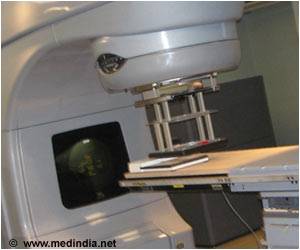Biology in high school taught us that we inherit certain traits from our parents that are pre-determined.

Epigenetics regulates gene expression in a reversible manner by chemically modifying DNA and histone proteins, which prevent permanent mutations or alterations within the gene themselves. Throughout DNA processing, a single strand will go through countless modifications that determine whether certain genes will eventually be expressed. A single addition or subtraction of a few carbon and hydrogen ions can determine the silencing of a tumor suppressor gene or the overexpression of an oncogene. The researchers previously emphasized that pretreatment of cancer cells with epigenetic drugs in addition to standard chemotherapy may sensitize these cells to other cytotoxic (anti-cancer) drugs, especially important in the setting of drug resistance.
"Recent studies suggest that epigenetic modifications may contribute to the development of cancer progenitor cells that can induce drug resistance and the relapse of different types of cancer," said Sibaji Sarkar, PhD, instructor of medicine at BUSM.
Adult drug resistant cancer cells may contribute to this problem, and the authors discuss these and other cancer drug resistance mechanisms in their recent publication in the September issue of the journal Cancers.
Drug resistance is a major problem in cancer treatment, as drug resistant cancers are thought to be the primary cause of cancer relapse. The mechanisms that promote or enable drug resistance include drug inactivation, drug target alteration, drug removal from cells, DNA damage repair, cell death inhibition and the epithelial-mesenchymal transition (EMT) that enable solid tumors to transform into more metastatic grades. Cancer progression is extremely complex, and the variation in pathogenesis along with the heterogeneity of cancer cells in tumors and metastasized cancers, makes effectively treating cancer akin to hitting a moving target.
Cancer cells are opportunistic in the sense that they hijack cellular events necessary for development and survival. For example, genes involved in suppressing tumor formation are turned off via epigenetic mechanisms, and genes involved in rapid growth and replication are turned on too high. The authors hypothesize that in addition to these functions, epigenetic alterations may also serve as a common trigger through which susceptible and genetically predisposed stem cells become cancer progenitor cells. These progenitor cells are often drug resistant and can initiate cancer development and are possibly involved in cancer relapse. Moreover, epigenetic changes regulate cancer cell metastasis and the formation of heterogeneous cell populations that are very difficult to treat.
Advertisement
Studies in cancer patients indicate reduced rates of relapse when patients are pretreated with epigenetic drugs due to its far-reaching capabilities; killing progenitor cells at the site of the tumor, in circulation, or at a distant site. These drugs sensitize cancer cells to alternative treatments and stave off progenitor cells that could prevent cancer relapse. There already has been great effort to elucidate the mechanisms of gene expression regulation, but it will be important to continue research to fully realize the potential of these epigenetic therapies and their applications in clinical settings.
Advertisement
"The reversible nature of these changes gives us hope that epigenetic drugs will be able to manage and cure these types of diseases and disorders," said Sarkar.
Source-Eurekalert















